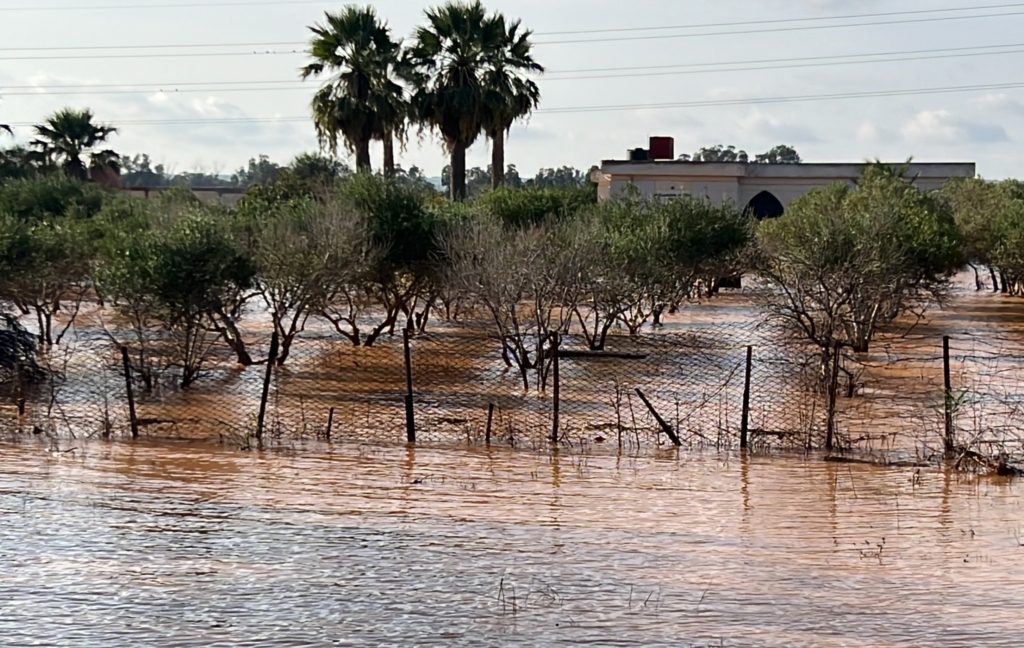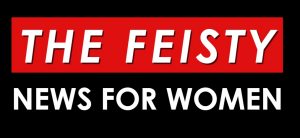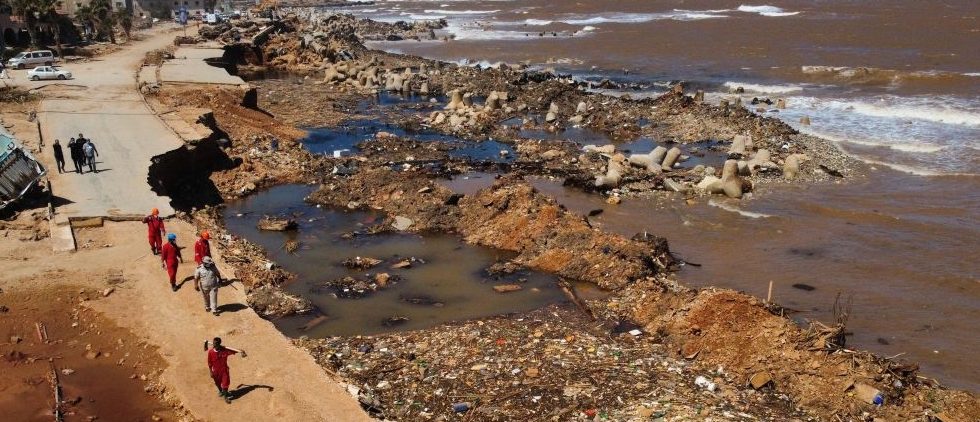[ad_1]
The Libyan Arab Armed Forces (LAAF), an armed group in de facto control of eastern Libya including the flood-ravaged city of Derna, must immediately lift all undue restrictions imposed on media and facilitate the delivery of humanitarian aid to all affected communities, said Amnesty International.
On 18 September, LAAF increased restrictions on journalists after thousands of residents and volunteer rescue workers took to the streets in Sahaba Square to demand accountability for the devastating loss of life caused by catastrophic flooding after two dams in the city burst on 11 September. The protesters also called for support for reconstruction and rehabilitation efforts and for resignations of local and national politicians. Witnesses also told Amnesty International of arrests of critics and protesters, amid LAAF’s efforts to choreograph and control media access.
“The loss of life and devastation in Derna and Libya is an unimaginable tragedy, with thousands still missing and tens of thousands displaced. Entire neighborhoods and families have been washed into the sea. Yet instead of focusing on facilitating humanitarian access to all affected communities, LAAF is resorting once again to its well-honed machinery of repression to silence criticism, muzzle civil society and evade responsibility,” said Diana Eltahawy, Amnesty International’s Deputy Regional Director for the Middle East and North Africa.
“The Libyan authorities and those in de facto control of affected areas must ensure that human rights are at the centre of the crisis response and refrain from reprisals against critics. During times of crisis, a vibrant civil society and independent media are vital to secure survivors’ rights to life, safe housing, food, health and access to information.”

Amnesty International spoke to Derna residents, journalists, humanitarian workers, civil society actors, and doctors involved in the crisis response. Additional information was obtained from an official in LAAF. Obtaining information about the situation in Derna has been hampered by disruptions to internet and telecommunication networks.
Fears that LAAF was responding to the crisis with its usual tactics of cracking down on critics began to grow after the arrest of a content creator, Jamal El Gomati, who was reporting live from Derna hours after the floods and who publicly accused officials of corruption and responsibility for the disaster. Human rights activists told Amnesty International that armed men in plainclothes, believed to be from the LAAF-affiliated Internal Security Agency armed group, seized him from his hometown of Shahhat, in the District of Jabal al Akhdar in north-eastern Libya on 17 September. He was forcibly disappeared for three days before being released on 19 September following interventions by a prominent LAAF commander.

From the onset of the crisis, journalists reported the need for security clearance and other access restrictions and interference in their work by LAAF affiliates. Two Libyan journalists told Amnesty International that local officials stopped and interrogated them on 14 September, before ordering them to leave the city. On 16 September, an activist from Derna was arrested after he gave an interview about the situation the city to a channel perceived as opposed to LAAF, according to relatives. After protests in Derna on 18 September, LAAF ordered journalists to leave the city, reversing their decision the next day but instructing remaining journalists not to approach rescue teams. Journalists consistently reported being followed by LAAF’s military media agents and witnessed interpreters being asked by officials not to translate content critical of the authorities.
A UN spokesperson told media on 19 September that a UN team was “not authorized to proceed” to Derna, while confirming that rescuers and humanitarian workers present in Derna were allowed to continue operating. Amnesty International also received reports about delays of aid reaching some affected areas, in part due to the plethora of checkpoints established by LAAF and about medical teams from western Libya and at least one international rescue team being instructed to leave.
Calls for an independent inquiry
Calls for accountability are growing among survivors and human rights defenders in the aftermath of the floods following years of poor governance and mismanagement by rival governments and the free reign of militias and armed groups prioritizing their self-interest over the lives and wellbeing of civilians in Libya. While the Tripoli-based Public Prosecutor visited Derna and announced investigations, the prevailing climate of impunity in Libya raises serious concerns around the Libyan justice system’s ability and willingness to deliver truth and justice.
“We have been consistently calling for an independent international investigative mechanism on the human right situation in Libya. In the absence of any meaningful prospects for accountability at the national level, there is an urgent need to establish the facts and circumstances surrounding the staggering loss of life and destruction in the wake of Storm Daniel. This includes examining whether Libyan authorities and those in de facto control of affected areas failed to protect the population’s rights to life, health and other human rights,” said Diana Eltahawy.
There is an urgent need to establish the facts and circumstances surrounding the staggering loss of life and destruction in the wake of Storm Daniel. This includes examining whether Libyan authorities and those in de facto control of affected areas failed to protect the population´s rights.
Diana Eltahawy, Amnesty International’s Deputy Regional Director for the Middle East and North Africa
Powerful commanders and members of militias and armed groups reasonably suspected of committing crimes under international law since the 2011 armed conflict have not only enjoyed total impunity, but have also been integrated into state institutions and received state funding. LAAF’s harsh response to protests and criticism further exposes their unwillingness to secure truth, justice and reparation for victims.
Background
Libya has been engulfed in armed conflict and political divisions since 2011, with parallel governments supported by unaccountable militias and armed groups claiming legitimacy. LAAF controls and carries out government-like functions in Benghazi, the second-largest city in Libya, and large swathes of eastern and southern Libya. LAAF’s use of brutal tactics to stifle dissent, restrict independent civil society and maintain their iron grip on power is well documented. On 11 September, disaster hit Derna, Sousse, Bayada, and other areas in the Green Mountain, after Storm Daniel (a Mediterranean tropical-like cyclone known as a medicane) triggered the collapse of two dams in the city of Derna, which had not undergone maintenance for decades. Amnesty International has called for prompt global mobilization to support rescue and rehabilitation efforts in all affected communities without discrimination, paying special attention to at-risk groups, including refugees, migrants, IDPs, and others facing multiple and intersectional forms of discrimination.
LAAF and its affiliated armed groups and security forces prevented hundreds of Tawerghans from returning to a Benghazi IDP camp, where they had lived for years and from where they were evacuated on 10 September ahead of the storm. According to activists, other residents were allowed to return to their homes in the same area.
[ad_2]
Source link
Author Profile
Latest Entries
 SportsSeptember 30, 2023Nevin seeks to build on her promise with Leicester City – FTBL | The home of football in Australia – The Women’s Game
SportsSeptember 30, 2023Nevin seeks to build on her promise with Leicester City – FTBL | The home of football in Australia – The Women’s Game Women's RightsSeptember 30, 2023Experts back decriminalization as the best means to enhance sex workers’ rights
Women's RightsSeptember 30, 2023Experts back decriminalization as the best means to enhance sex workers’ rights  World NewsSeptember 30, 2023What risks do China’s shadow banks pose to the economy? | Business and Economy
World NewsSeptember 30, 2023What risks do China’s shadow banks pose to the economy? | Business and Economy LifestyleSeptember 30, 2023Costco has begun selling gold bars
LifestyleSeptember 30, 2023Costco has begun selling gold bars



.jpeg)


